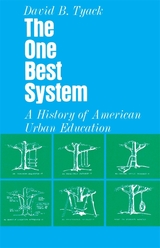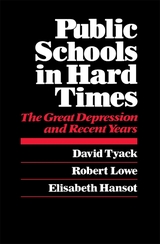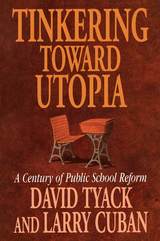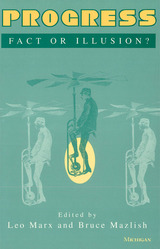

The One Best System presents a major new interpretation of what actually happened in the development of one of America's most influential institutions. At the same time it is a narrative in which the participants themselves speak out: farm children and factory workers, frontier teachers and city superintendents, black parents and elite reformers. And it encompasses both the achievements and the failures of the system: the successful assimilation of immigrants, racism and class bias; the opportunities offered to some, the injustices perpetuated for others.
David Tyack has placed his colorful, wide-ranging view of history within a broad new framework drawn from the most recent work in history, sociology, and political science. He looks at the politics and inertia, the ideologies and power struggles that formed the basis of our present educational system. Using a variety of social perspectives and methods of analysis, Tyack illuminates for all readers the change from village to urban ways of thinking and acting over the course of more than one hundred years.

In the first social history of what happened to public schools in those “years of the locust,” the authors explore the daily experience of schoolchildren in many kinds of communities—the public school students of working-class northeastern towns, the rural black children of the South, the prosperous adolescents of midwestern suburbs. How did educators respond to the fiscal crisis, and why did Americans retain their faith in public schooling during the cataclysm? The authors examine how New Dealers regarded public education and the reaction of public school people to the distinctive New Deal style in programs such as the National Youth Administration. They illustrate the story with photographs, cartoons, and vignettes of life behind the schoolhouse door.
Moving from that troubled period to our own, the authors compare the anxieties of the depression decade with the uncertainties of the 1970s and 1980s. Heirs to an optimistic tradition and trained to manage growth, school staff have lately encountered three shortages: of pupils, money, and public confidence. Professional morale has dropped as expectations and criticism have mounted. Changes in the governing and financing of education have made planning for the future even riskier than usual.
Drawing on the experience of the 1930s to illuminate the problems of the 1980s, the authors lend historical perspective to current discussions about the future of public education. They stress the basic stability of public education while emphasizing the unfinished business of achieving equality in schooling.

The American republic will survive only if its citizens are educated--this was an article of faith of its founders. But seeking common civic ground in public schools has never been easy in a society where schoolchildren followed different religions, adhered to different cultural traditions, spoke many languages, and were identified as members of different "races."
In this wise and enlightening book, filled with vivid characters and memorable incidents that make history but don't always make history books, David Tyack describes how each American generation grappled with the knotty task of creating political unity and social diversity.
Seeking Common Ground illuminates puzzles about democracy in education and chronic conflicts that continue to make news. Americans mistrusted government, yet they entrusted the civic education of their children to public schools. American history textbooks were notoriously dull, but they were also highly controversial. Although the people liked local control of schools, educational experts called it "democracy gone to seed" and campaigned to "take the schools out of politics." Reformers argued about whether it was more democratic to teach all students the same subjects or to tailor curriculum to individuals. And what was the best way to "Americanize" immigrants, asked educators: by forced-fed assimilation or by honoring their ethnic heritages?
With a broad perspective and an eye for telling detail, Tyack lets us see that debates about the civic purposes of schools are an essential part of a democratic culture, and integral to its future.

For over a century, Americans have translated their cultural anxieties and hopes into dramatic demands for educational reform. Although policy talk has sounded a millennial tone, the actual reforms have been gradual and incremental. Tinkering toward Utopia documents the dynamic tension between Americans’ faith in education as a panacea and the moderate pace of change in educational practices.
In this book, David Tyack and Larry Cuban explore some basic questions about the nature of educational reform. Why have Americans come to believe that schooling has regressed? Have educational reforms occurred in cycles, and if so, why? Why has it been so difficult to change the basic institutional patterns of schooling? What actually happened when reformers tried to “reinvent” schooling?
Tyack and Cuban argue that the ahistorical nature of most current reform proposals magnifies defects and understates the difficulty of changing the system. Policy talk has alternated between lamentation and overconfidence. The authors suggest that reformers today need to focus on ways to help teachers improve instruction from the inside out instead of decreeing change by remote control, and that reformers must also keep in mind the democratic purposes that guide public education.
READERS
Browse our collection.
PUBLISHERS
See BiblioVault's publisher services.
STUDENT SERVICES
Files for college accessibility offices.
UChicago Accessibility Resources
home | accessibility | search | about | contact us
BiblioVault ® 2001 - 2025
The University of Chicago Press









